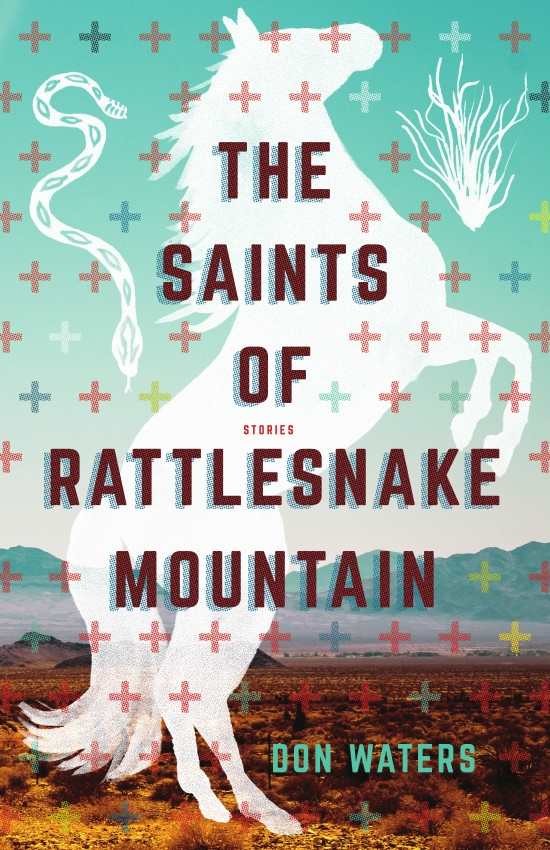The Saints of Rattlesnake Mountain
What’s revealed in these stories, as so often in life, is that “the only thing separating well-being from danger [is] a line in the sand.”
Don Waters’s second short-story collection, The Saints of Rattlesnake Mountain, is a literary exploration of what survives in the shadow of the Valley of Death. These nine stories take place in locations throughout the Southwest and explore the wasted, sometimes austere emotions of people who are trying to survive inner landscapes as harsh as those without.
The drama of these stories is writ large. A soldier returns to find his low-income town riddled by drugs. Prisoners working in the Bureau of Land Management’s mustang program struggle with the endlessness of open sky. Children ricochet along Reno’s back alleys during the dog days of their childhood’s final summer. A grief-stricken woman is dehumanized, literally and metaphorically, in graphically violent, fetishized animal attacks. An embittered L.A. screenwriter finds expiation in a deserted back-lot church in rural New Mexico. A suicide club crosses the border into Mexico, seeking lethal doses of drugs on the Day of the Dead. These protagonists are troubled and flawed, and they struggle to hold on to what makes them human.
Religious symbolism foreshadows much of the action and plays out against questions of devotion, belief, and faith, often in the form of Catholicism. The religious tropes are highlighted in the frequent narrative bent toward fatherless men and derelict fathers. As various male protagonists find themselves in literal or emotional deserts forced to confront their own trauma and mortality, the tension of their dysfunctional relationships is imbued with echoes of larger religious narratives about God the Father and Jesus the Son. Often, this choice deepens characterization, as in “Espanola”; other times, the gesture seems forced.
Throughout this collection, Waters captures the story’s protagonist just after the fulcrum of his life has shifted toward the dire and follows them as they’re brutally tested. What’s revealed in these stories, as so often in life, is that “the only thing separating well-being from danger [is] a line in the sand.”
Reviewed by
Letitia Montgomery-Rodgers
Disclosure: This article is not an endorsement, but a review. The publisher of this book provided free copies of the book to have their book reviewed by a professional reviewer. No fee was paid by the publisher for this review. Foreword Reviews only recommends books that we love. Foreword Magazine, Inc. is disclosing this in accordance with the Federal Trade Commission’s 16 CFR, Part 255.


